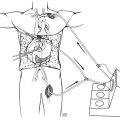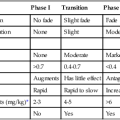An outstanding answering service will provide exceptional customer service to you and your callers, pay close attention to detail, and guarantee that your business is adhering to all current HIPAA regulations and state and federal standards in order to protect the privacy of your clients.
Medical call centers answering services help your callers feel valued and save you money by freeing up time and human resources to concentrate on your primary goals. Medical answering services handle calls and inquiries for medical practices and healthcare organizations. After-hours calls to your office are diverted to live receptionists at remote locations who answer on your behalf and represent your practice.
The employees at medical call centers are trained in customer service to address the majority of frequently asked questions, including those about appointments, on-call emergencies, regular office calls, etc. Setting and canceling appointments, providing medical information when permitted by law, forwarding calls to other parties, personal messaging services, and emergency service providers are among the advanced skills that some answering service professionals possess.
Answering services can aid your on-site staff by receiving messages, verifying the status of appointments, and forwarding calls to specific individuals or departments during busy times and peak call hours.
In order to make sure that no calls are missed, particularly from patients who have an urgent medical need beyond regular business hours, the majority of medical call answering services are open twenty-four hours a day, seven days a week.
In the modern medical field, using one of these answering services is almost a standard practice because it greatly expands the scope of services available to medical professionals.
It is more crucial than ever to maintain that availability, given that most practices see an increase in patients each year and that medical services are becoming more complicated.
Not only can a skilled medical answering service provider continue to handle your receptionists’ tasks, but they also bring value to your business. Functions such as message taking, appointment scheduling, call answering, etc., but with particular training for the healthcare sector. This gives them the ability to increase the effectiveness of your office and help your clients get the services they require and desire. This boosts your office’s effectiveness, lowers total expenses, enhances patient care on an individual basis, and enhances your standing as a medical professional.
Comparing Telephone Answering Services with Medical Call Answering Services
Medical call answering services and standard telephone answering services are two of the most popular services. Taking care of routine incoming calls and managing more intricate interactions are the two main distinctions between these services.
In order to support the practice they represent and handle more complex concerns, medical call answering services usually have superior training. Owing to their extensive training, they are typically able to provide a more comprehensive service pertaining to a wide range of concerns and practice areas.
Medical answering services may also provide call forwarding and messaging in addition to the following:
- Connecting to your software programs
- Making or canceling appointments
- Intricate call routing and programming
Conversely, phone answering services frequently concentrate their training on a wider variety of sectors. They might only be able to answer phones, take messages, provide simple (i.e., scripted) information or answers, and handle emergencies.
Hiring a highly trained medical call answering service would typically cost more per minute or hour than using a basic or general telephone service.
Call times with medical call answering services are typically lengthier due to the volume of information delivered. Since most answering services cost by the minute, longer calls come at a higher cost.
What Makes a Medical Answering Service Necessary?
Medical emergencies and medical interactions occur around the clock, much like life and business.
Callers who are compelled to leave a voice message and then await a callback—or who must make a callback themselves—will become furious and unhappy after hours.
Additionally, people might search for a medical professional who is available when they need one—and there are many! At the same time, many providers cannot afford the expense and inconvenience of keeping an office open around the clock.
Successful direct-care medical practices depend on the ability and availability of third-party medical call-answering services. This is a current commercial reality.
Patient happiness and satisfaction are the most important factors in any medical practice’s success.
You’ve put a lot of effort into developing a reputation as a top-notch and trustworthy medical practice; keep doing so even after you close for the evening!
Your patients likely work a variety of shifts and schedules, so you may be losing out on business from clients who are unable to reach you during typical business hours. Without a dependable call service, these clients would also be losing out on the assistance you can offer to them and their families.
Patients depend on you, and you rely on them for all 365 days a year.
It sounds more difficult than it is to execute.
A full-time medical call answering service can satisfy both of those requirements. This service will enable you to provide HIPAA-compliant, qualified experts that your partners and clients can contact day or night.
Medical call-answering services become vital allies for medical practices in the ever-changing and fast-paced world of healthcare. These services not only improve patient pleasure but also expedite operations and improve the standing of medical practitioners by guaranteeing constant availability, compliance with regulations such as HIPAA, and professional handling of inquiries. Accepting the assistance of a specialized medical call answering service is not just a calculated move but also a pledge to give patients the best possible care and accessibility, promoting dependability and confidence in all facets of medical practice.




